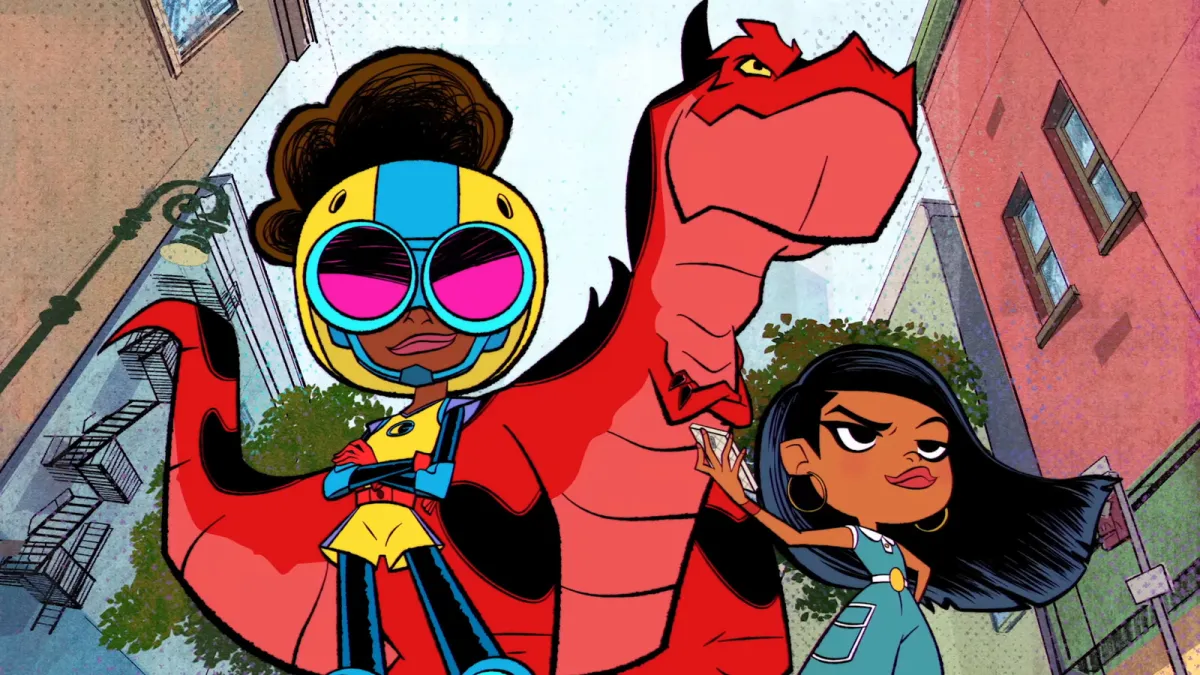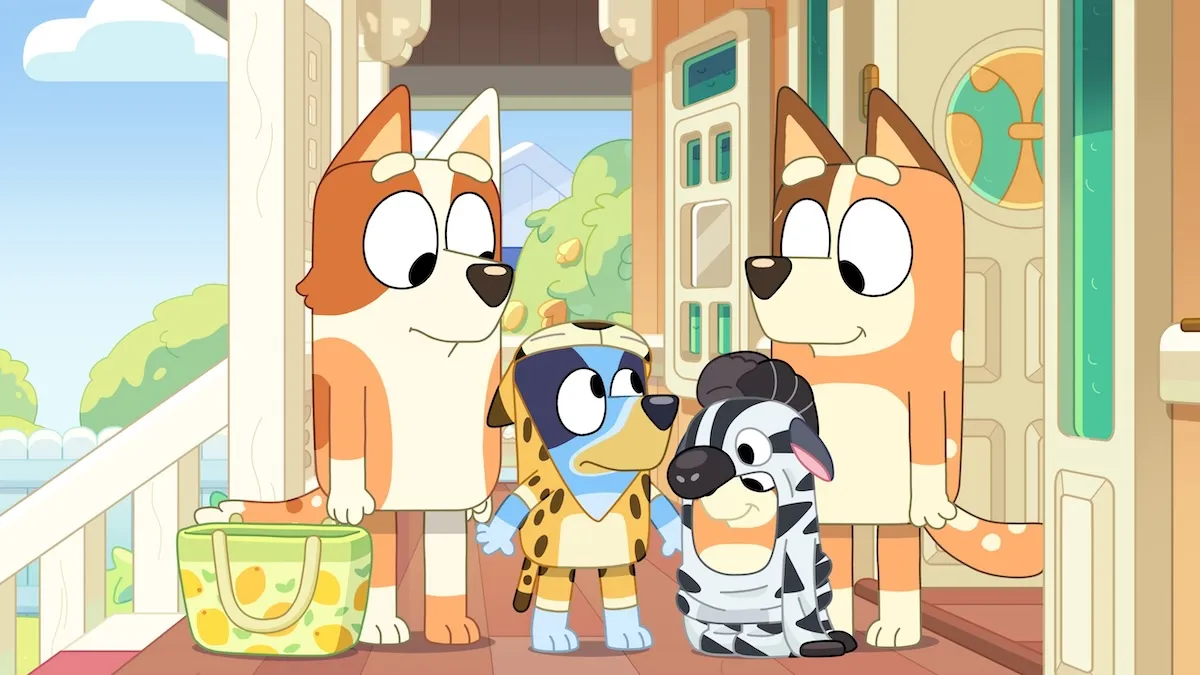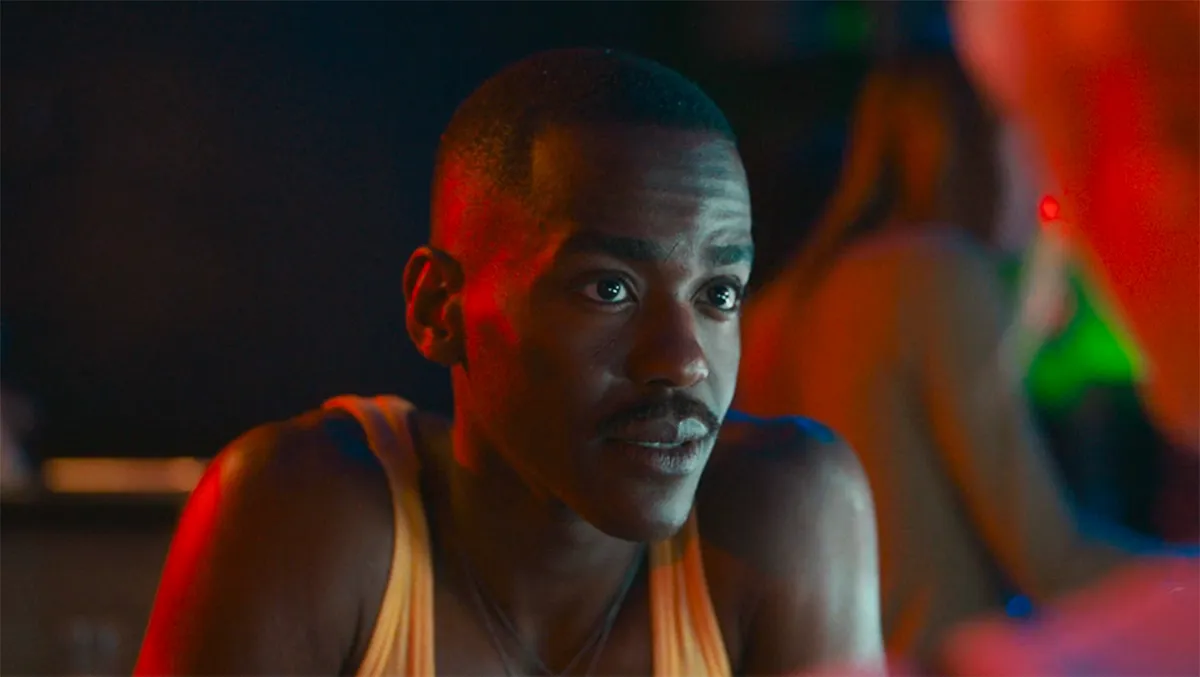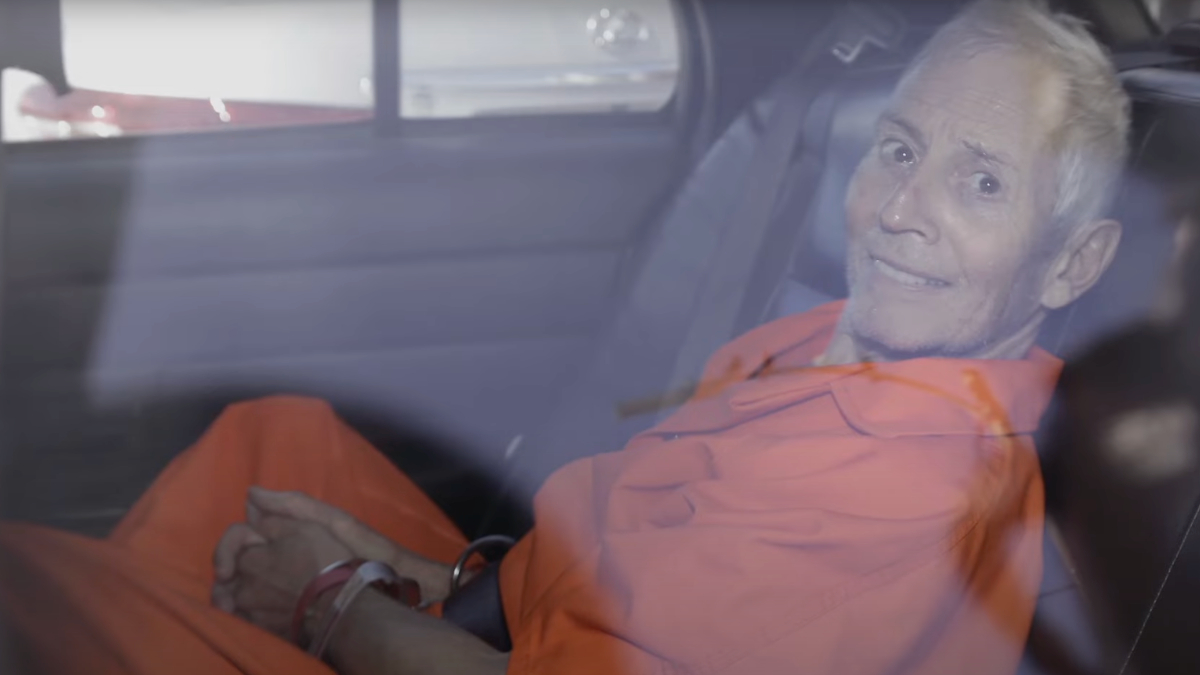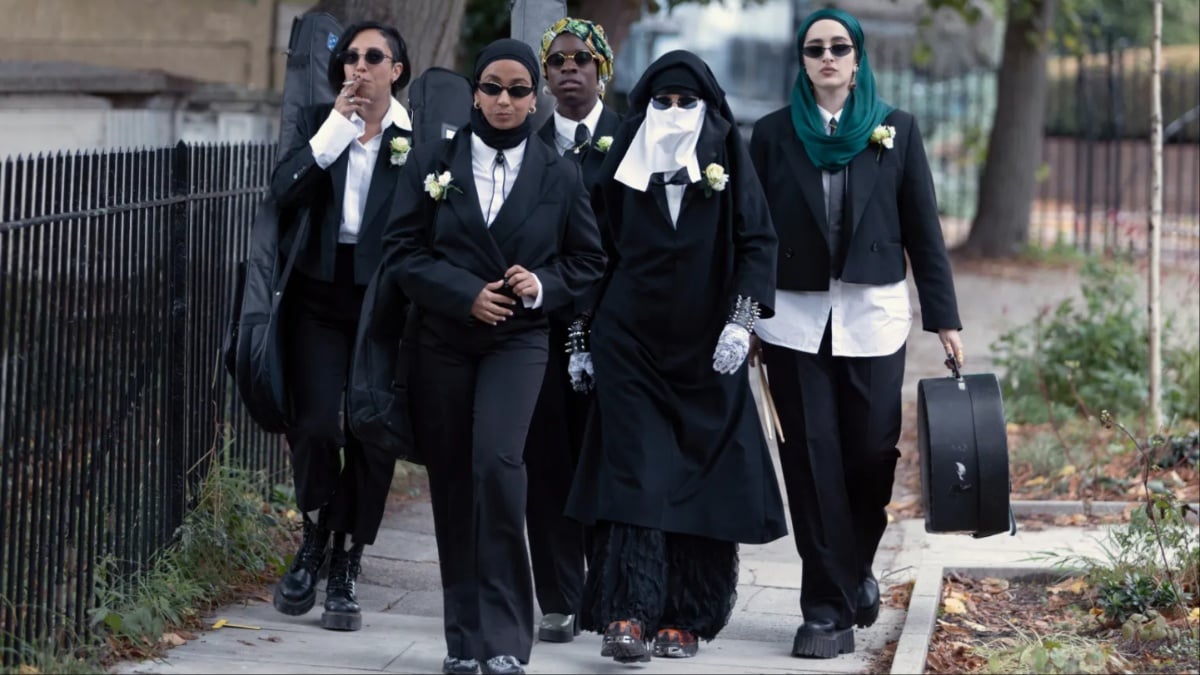Moon Girl and Devil Dinosaur, Marvel’s new animated series about a girl genius and her dinosaur in New York’s Lower East Side, is now streaming on Disney+ (up to episode 6). The whole series is a delight, but one episode episode especially resonated with me: “Hair Today, Gone Tomorrow.” If you only watch one Moon Girl episode, make it this one.
In this episode, school picture day is coming up, and Lunella’s mom gets on her case about not taking proper care of her hair. Things get worse when a white girl insults Lunella’s puffs, calling her hair “messy” and “frizzy.” Lunella decides to invent a new kind of superpowered hair straightener in her lab, but her concoction ends up turning her hair into a supervillain.
Before I go on, a quick disclaimer: Although I have curly hair, I’m not Black, so my experiences with these issues aren’t the same as the ones depicted in the show. If you’re not familiar with the politicization of Black hair and other textured hair, check out Marita Golden’s essay “My Black Hair,” our Alyssa Shotwell’s coverage of Black hair products and issues, or books like Claribel A. Ortega’s Frizzy.
So, why is this episode so good? There are so many reasons.
First off, there’s its unflinching portrayal of how these racist dynamics tend to play out. The white girl in Lunella’s class is the one policing and enforcing what “good hair” and “bad hair” look like. Her smirk after she puts down Lunella’s hair shows that she knows exactly how hurtful she’s being.
Then there’s Lunella’s best friend Casey, who tries to shield Lunella from the other girl’s bullying. Casey in emphatic that Lunella’s natural hair is beautiful, but when Lunella is adamant about straightening it, Casey respects her choice and tries to help as much as she can. Casey understands that Lunella should have the final say over what happens to her own body. (And she’s a good reminder that although natural hair is beautiful, it’s also totally okay if you want to experiment or change it! It’s yours!)
There’s also Lunella’s mom and grandmother, who are warm, compassionate resources for her when she can’t figure out what to do. They explain the beauty and history of Black hair to her, making her feel loved and accepted.
The best part, though, is the end of the episode. (Warning: spoiler ahead, although not a very shocking one.) Lunella figures out that the solution to her problem isn’t to fight and subdue her hair, but to love and embrace it. Again, my experience growing up was very different from Lunella’s, but the episode made me wish I’d had just one person in my life who told me my Ashkenazi hair was beautiful, instead of telling me to “tame” or “deal with” all the frizz. I wish there had been one person who actually knew how to care for curly hair—someone who could have steered me away from straightening irons and sulfate shampoos and toward good moisturizers and a silk pillowcase. Seeing Lunella grow to love her hair at the end of the episode is so affirming, and so important.
One more thing: When I say everyone should watch this episode, I mean everyone, no matter what hair type you have. Watch it if you have textured hair. Watch it if you don’t. Watch it, expand your mind, and grow your heart.
(featured image: Disney+)



